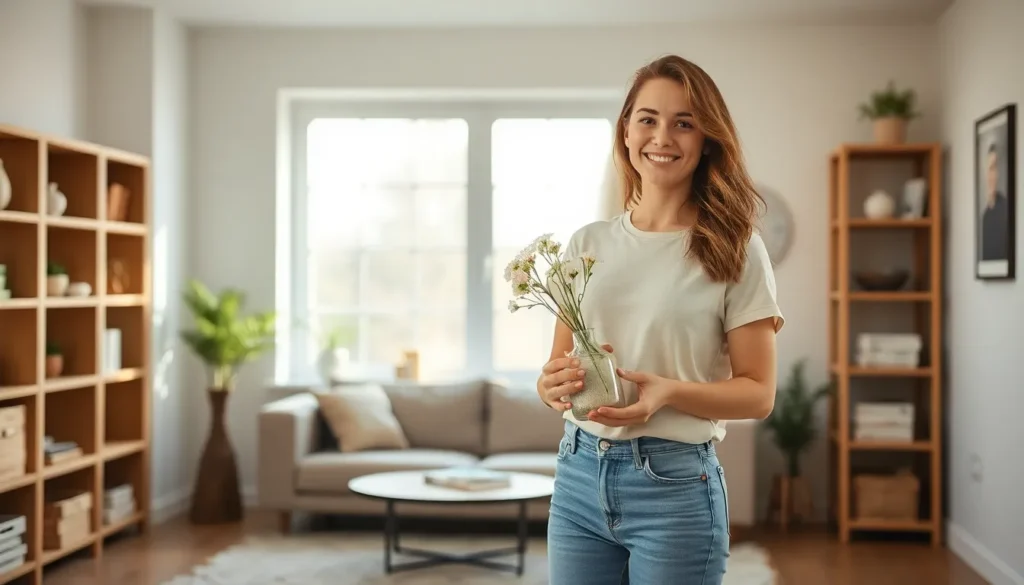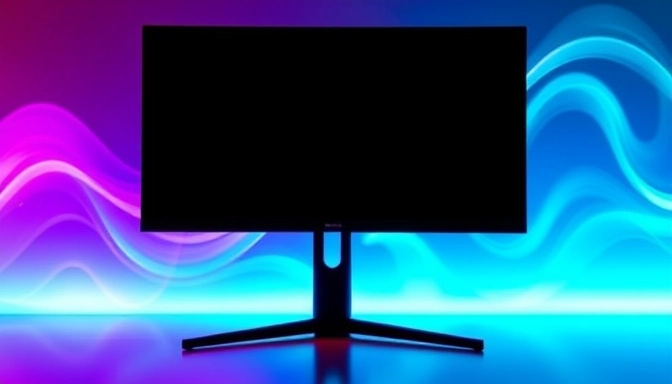In a world overflowing with stuff, minimalist decluttering offers a breath of fresh air—or maybe just a little extra space for that new cactus you’ve been eyeing. It’s not just about tossing out old socks and questionable kitchen gadgets; it’s a lifestyle choice that can transform chaos into calm. Imagine a home where every item sparks joy instead of frustration. Sounds dreamy, right?
Table of Contents
ToggleUnderstanding Minimalist Decluttering
Minimalist decluttering serves as a lifestyle choice aimed at creating serene living spaces. This approach transforms environments, ensuring every item possesses unique value and contributes to harmony.
Definition of Minimalist Decluttering
Minimalist decluttering refers to intentionally removing excess items from one’s surroundings. Rather than merely discarding stuff, the focus lies on thoughtfully selecting possessions that enhance life. Each chosen item should spark joy, promoting a sense of fulfillment. This process encourages individuals to reflect on what truly matters, leading to more meaningful living.
Key Principles of Minimalism
Several key principles underline the minimalist philosophy. First, simplicity stands at the core, advocating for fewer, well-chosen possessions. Second, purpose guides decisions; individuals must ask whether an item serves a legitimate function. Third, quality trumps quantity. Quality items offer durability and satisfaction, reducing the need for replacements. Finally, intentionality fosters awareness. Living with intention means recognizing the impact belongings have on overall well-being. Embracing these principles shapes a more organized, peaceful environment.
Benefits of Minimalist Decluttering

Minimalist decluttering offers numerous advantages that enhance both physical and mental well-being. Embracing this lifestyle choice leads to a more fulfilling and organized life.
Mental Clarity and Focus
Mental clarity arises from the intentional removal of excess items. A decluttered environment minimizes distractions, allowing individuals to concentrate more effectively on tasks at hand. With fewer possessions to manage, individuals often experience reduced anxiety and stress levels. Gaining clarity promotes better decision-making, as there is newfound mental space for creativity and innovative thinking. Overall, embracing minimalism cultivates a serene atmosphere that enhances focus and productivity.
Financial Savings
Financial savings become evident when individuals adopt minimalist decluttering. By prioritizing quality over quantity, individuals invest in fewer but longer-lasting items, reducing long-term spending. Purchasing unnecessary items often leads to clutter that demands upkeep and additional expenses. Minimalism encourages thoughtful purchasing habits, which can lead to significant savings over time. People find that they allocate resources more wisely, focusing on experiences rather than material possessions that provide fleeting satisfaction.
Steps to Start Minimalist Decluttering
Beginning the minimalist decluttering process involves a few structured steps. Each step guides you toward a more organized living space and a simpler lifestyle.
Assessing Your Space
First, evaluate each area of your home. Identify the spaces that feel cluttered or overwhelming. Consider starting with smaller areas to avoid feeling discouraged. Rooms like the bedroom or kitchen often yield quick wins. Focus on specific zones, such as a drawer or a countertop. Creating a vision for a decluttered space can offer motivation. Note down any items that no longer serve a purpose or bring joy. Finally, determine what the ideal version of your space looks like. A clear assessment lays the groundwork for effective decision-making.
Making Decisions on Items
Next, confront the items within your assessed spaces. Begin by asking whether each item sparks joy or serves a specific purpose. If uncertainty arises, consider how often you use each item. Create a simple system for categorizing possessions: keep, donate, or discard. It’s important to put limits on the number of specific items you keep. For instance, limit sentimental items to a designated box. Choose to donate items that others can use, ensuring they find a new home. Lastly, embrace the idea that letting go can open up space for what truly matters.
Tips for Successful Minimalist Decluttering
Successful minimalist decluttering hinges on strategic planning and commitment. Implementing specific techniques can streamline the process and enhance outcomes.
Setting Realistic Goals
Realistic goals empower individuals to focus on actionable steps. Assigning a specific area each week prevents overwhelm and encourages steady progress. Goals should be measurable, like decluttering one room or a single category of items. Focusing on achievable targets enhances motivation and provides a sense of accomplishment. Reflecting on what “minimal” means to each person can guide these objectives, ensuring they resonate with personal values and lifestyle aspirations.
Creating a Decluttering Schedule
Creating a decluttering schedule offers structure to the process. Dedicate time each day or week solely to this practice to maintain momentum. Breaking the project into smaller, manageable tasks reduces feelings of burnout. Setting aside 30 minutes daily for decluttering sessions yields significant results over time. Utilizing a calendar or planner can help track progress and keep individuals accountable. Establish deadlines for each area to foster a sense of urgency and satisfaction, creating a clear path towards a more organized living space.
Embracing minimalist decluttering can transform not just living spaces but also overall well-being. By prioritizing joy and purpose in possessions individuals can cultivate environments that inspire clarity and peace. The journey may require effort and commitment but the rewards are substantial.
As they navigate this process it’s essential to remember that every small step contributes to a larger goal. Focusing on intentional choices fosters a mindset that values quality over quantity. This shift not only enhances physical surroundings but also nurtures mental health.
Ultimately minimalist decluttering is about creating a life that reflects personal values and aspirations. With each item thoughtfully evaluated and each cluttered corner addressed the path to tranquility becomes clearer.





